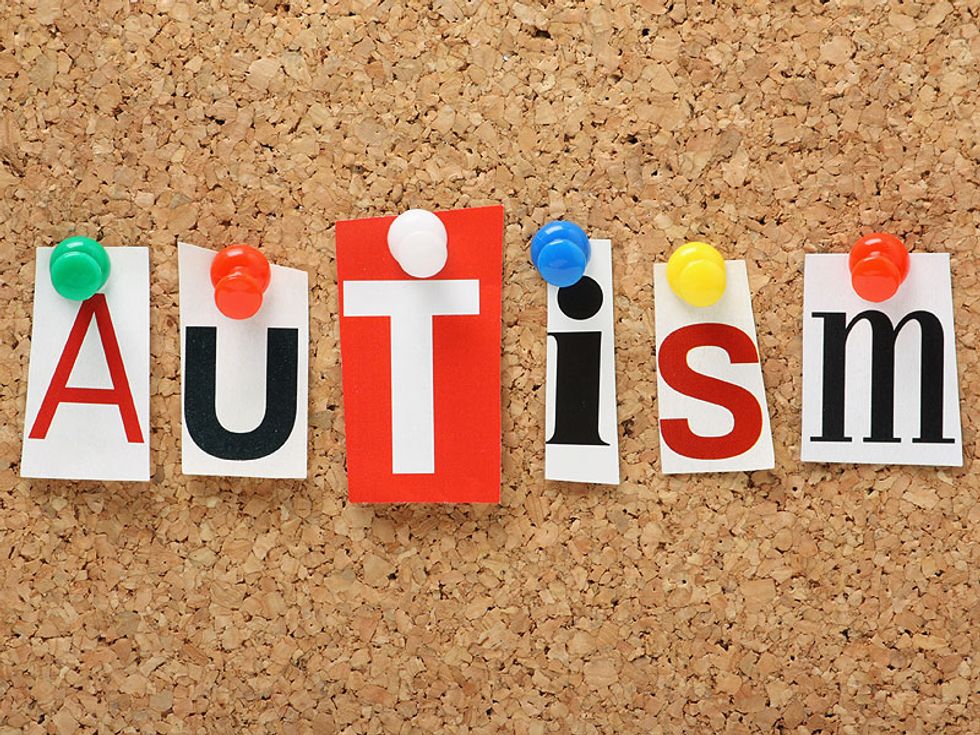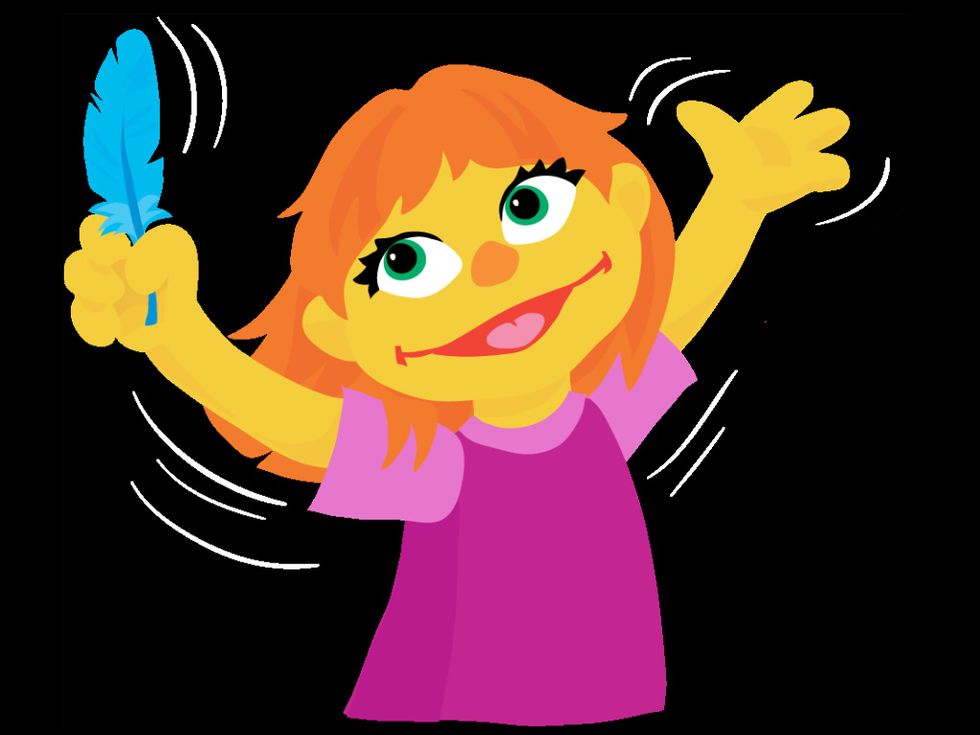I could start off this article by stating some definition about what autism is and what that means for individuals with it, but I’m not going to. I’m going to start off by telling you what you should already know about autism at this point. People with autism are everywhere you go. They go to the grocery store, they go to school, they watch TV and they even get stuck in traffic— just like you. The point is, people who have autism are just like you and me, and every other person out there. But the fact is, 1 in 68 people are diagnosed with autism within the United States. So why aren’t they ever portrayed in the media?
A couple days ago, Sesame Street announced that there was going to be a new puppet on the block: Julia. Not that big of news, except for the fact that Julia has autism! I’ll admit it, I was pretty pumped when I heard that Sesame Street was going to become a little more inclusive by adding a puppet that reflects real life and real people’s lives. Especially on such a pivotal and influential program, where millions of kids watch it and learn about new things daily. I grew up watching Sesame Street on PBS and I can honestly say that it influenced how I look at the world.
As many of you may know, I plan on majoring in Special Education and maybe even become a teacher with that degree, so you can see why seeing this new development with Sesame Street excites me. I have become such good friends with people who have autism and I want them to see themselves accurately portrayed within the media. I think it’s also important for those who do not have autism to understand that they are our fellow friends and peers. A lot of the times, people tend to be scared or they start to act differently around those with disabilities because that’s one of the common misconceptions about how to treat those who are disabled.
Yet, a lot of times, the disabled community just wants to be treated like everyone else in the world, regardless of their disability. I’ve read personal stories from within the disabled community who were growing up in the 80’s where they said that during that time, people would stare because they were curious. However, at this current time, people will go out of their way to actively avoid people with disabilities because they assume it’s the correct etiquette to do, which is not the case at all.
By having a puppet, or any other character, with clearly stated autism can be life-changing; not just for the people with autism, but also for those who have never even met a person with autism before. As a kid, I can only imagine how tough it must be to never actually see somebody like yourself up on the big screen. I can somewhat relate—I had never seen a multiracial family like mine well up until I was in highschool, and let me just tell you how it felt: it sucked. Representation is such a vital key in shaping positive people in today’s society. It's not just any type of representation, it also has to be positive. When children are watching TV or reading books and never seeing a character that they can truly, one hundred percent relate to, it can be very damaging to their ego and to their self-worth.
Although as thrilled as I am, as are many more that are involved within the disabled community, there also seems to be a lot of backlash. In the past couple of years, this idea that vaccines can cause autism has been up and coming within the media and even Hollywood. The overall notion was that Big Pharma, pharmaceutical companies having a sinister agenda against the people, were creating vaccines that claimed to have side effects included causing autism.
Not only has the theory been debunked many times, but there is no scientific concrete evidence as to what causes autism (yet, considering the University of Minnesota has been working on trying to find out what causes it.) Many of the “Anti-Vaxxers” (as they call themselves) have stated that they feel that it is Big Pharma’s intention to normalize autism’s increasing diagnosis within today’s society. I truly don’t understand why Anti-Vaxxers are so against people with autism. This is incredibly harmful because PBS isn’t “normalizing victims of a horrible disease" but are instead creating a realistic population that does include individuals who have autism as well.
Regardless of who this decision pisses off, I am extremely happy to welcome Julia the puppet to Sesame Street and hope that this generation of children who are watching this show will learn to not be so afraid when it comes to interacting with other children who may have autism. Hopefully, this can be a huge step into involving other marginalized groups that can be accurately represented within today’s shows.





















